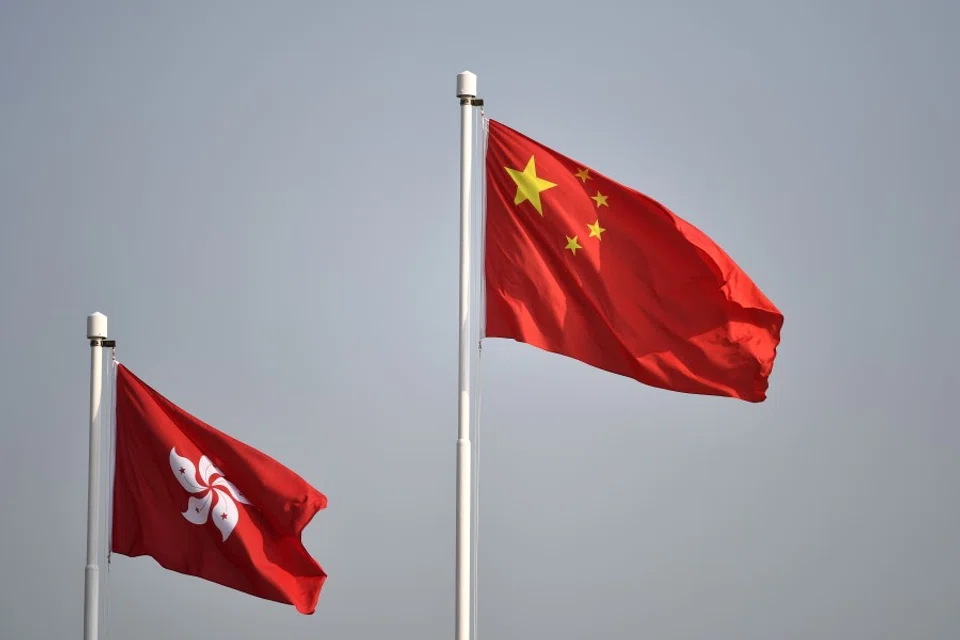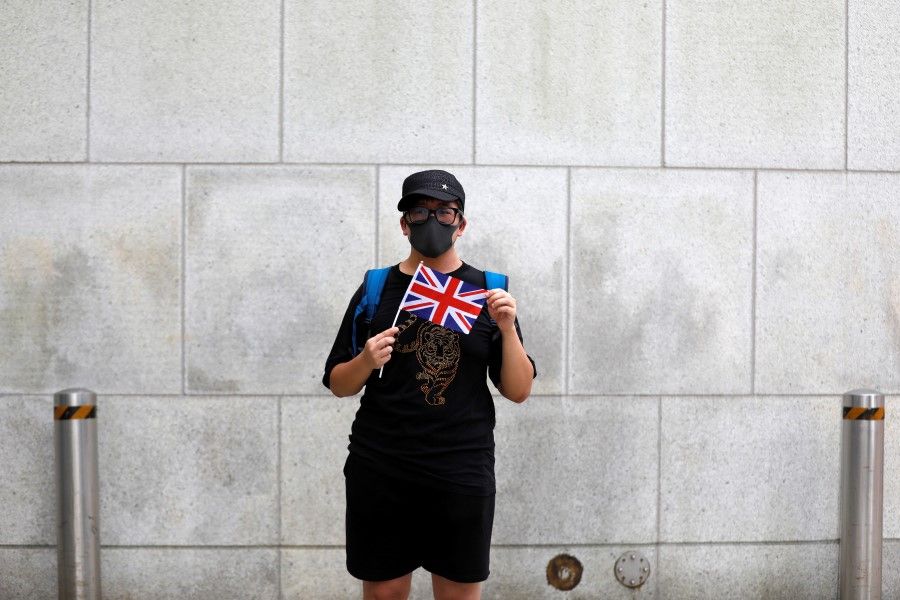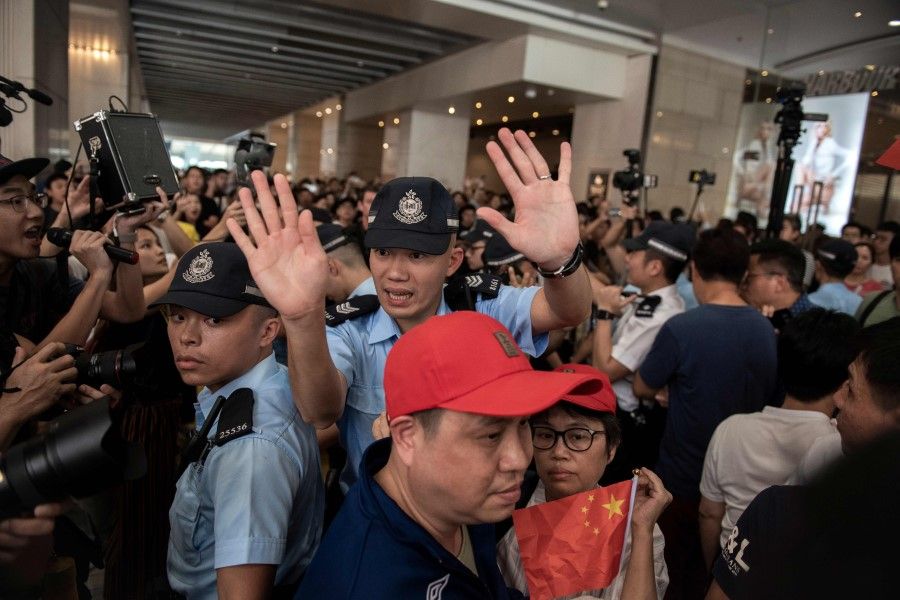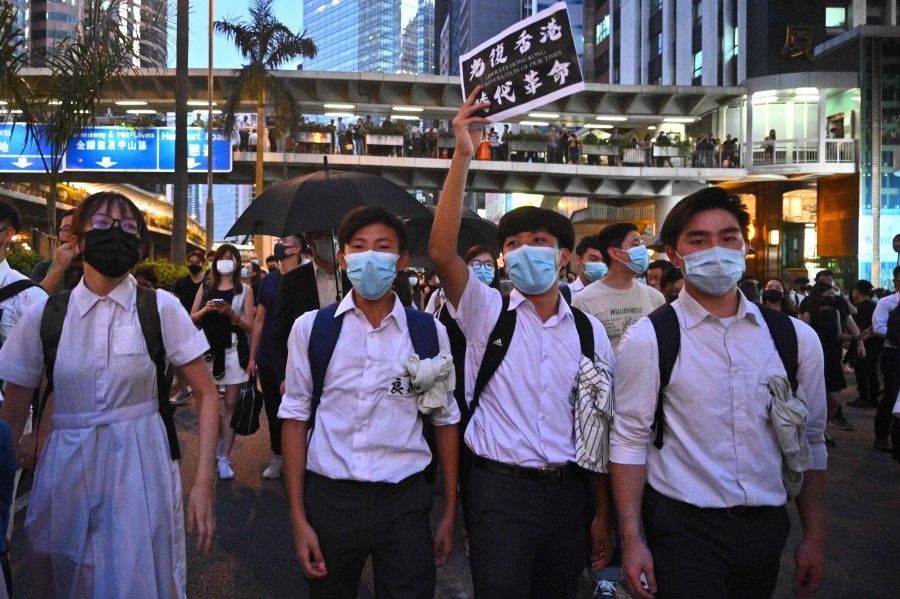Wherein lies the future of Hong Kong?

I was in Hong Kong recently to observe the demonstrations on the ground. I talked to the protesters in the streets to appreciate how they felt and get to know what they wanted. My general sense is that Hong Kong is still running normally. The impression we observers get from news reports is that the whole of Hong Kong is turned on its head, but that is really not the case. What we have here is a classic middle-class society where the most important thing for most people is putting food on the table for their families. For both the SAR government and China's central government, there is no need to overreact and make matters worse, because Hong Kong's problems run deep and can only be relieved with long-term efforts.
Since Hong Kong's founding, it has always run on a separate track from mainland China. During the Canton-Hong Kong strike of the 1920s, there was at least some solidarity between the people of both sides. Unfortunately, they basically separated into two different worlds after 1949, and the rift in understanding between them now is a very deep one. Nevertheless, the destinies of the two are bound to converge. The two sides must ultimately come together as one. One difficult issue to be resolved is that of identity. The challenge faced by Hong Kong in this aspect is how it is to overcome its increasingly untenable sense of superiority, accept the reality of "one country", and still retain its own system and way of life. The challenge for Beijing, on the other hand, is how it should accommodate this highly liberalistic cosmopolis in its fold.
Back in the 1980s and 90s, Hong Kong was the attractive "window to the southern wind" for the mainland, the trendsetter for China's reform and opening-up. Hong Kong was in vogue. The mainland's entertainment stars had to awkwardly imitate the accent of this smaller neighbour to garner fans. This was Hong Kong at its most glorious, thanks to which the Hong Kongers came to form their sense of superiority.
Fortunes, however, do rise and fall. Times have changed. Just last year, the economic aggregate of neighbouring Shenzhen exceeded Hong Kong's. Still, the sense of superiority in Hong Kong persists, and constitutes a major source of the frustration and aggression currently permeating the battered city. In other words, the Hong Kongers' mentality, just like that of the Americans, has yet to adjust itself to the risen China.
Many in the mainland imagine simplistically that trouble is breaking out in Hong Kong for two reasons: one, the failure to clear away the "colonial mindset" and carry out patriotism education soon enough; and two, that Western countries are inciting another colour revolution. This is a misdiagnosis.
The greatest obstacle to such a mental adjustment is the conflict of values. This is the problem mainland China runs up against, whether it is dealing with Hong Kong, Taiwan, the US, other Western countries, or even Japan, South Korea and relatively developed Third World countries.
The clear impression I get from talking to the young protesters is this: not only do they not identify in the least with mainland China, they overflow with resistance; not only do they feel no shame about Hong Kong's colonial past, they are actually very proud of it. Among the protesters who gathered in the evening before the Legislative Council were people who held up the Union Jack and the Stars and Stripes. Scrawled on a barrier at Victoria Harbour was graffiti that read: "When the American troops come, I shall lead the way!" Such traitorous and pro-independence expressions can easily stir up the anger of the 1.4 billion people of China, giving the central government no choice but to take tough measures, and perhaps even put an end to the "one country, two systems" policy.

Many in the mainland imagine simplistically that trouble is breaking out in Hong Kong for two reasons: one, the failure to clear away the "colonial mindset" and carry out patriotism education soon enough; and two, that Western countries are inciting another colour revolution. This is a misdiagnosis. Even though the radical youngsters may not be representative of all Hong Kongers, the fear and pessimism about the future emanating from their actions are actually quite pervasive. That is the true root of the problem.
Let's first talk about the fear. The ongoing protest movement is dubbed the "anti-extradition bill" movement in Hong Kong. Encapsulated in that tag is fear. And what underlies this fear is an intense conflict of values. Living with a different set of values, many Hong Kongers feel a sense of loss rather than pride with regard to the rise of mainland China. In their eyes, they are far ahead of the "nouveau-riche" Mainlanders in terms of education, values, social system, and personal cultivation. The mainland's growing shadow over them is perceived as a threat to their existing way of life. These people fear that the mainland's influence will gradually rob them of the rights they enjoy, and they increasingly view the SAR government as a proxy for Beijing.
Hong Kongers strongly support universal suffrage, as it bears much real-life significance for them. In contrast, the mainland generally faces no pressure to democratise - something which has greatly baffled the West for a long time.
I ask the protesters: why such fury this time? The reason they give me is mainly twofold. One part of it is police brutality; the other is the SAR government's indifference in the face of demands on the grand scale we have seen. The people find this infuriating and incomprehensible. Those who clash with the police physically are mostly young students. They are obviously beaten back, so it is only natural for them to hate the police. However, such hatred will dissipate over time, especially when they realise that Hong Kong's police are actually rather moderate in comparison to their confreres in the US. Our concern in the long run should be the mistrust for the SAR government.

Hong Kong is a locus of conflicts through and through. Its government is not elected by the people, nor does it possess multiple channels and means for gathering and responding to popular opinion like those developed by the Chinese Communist Party (CCP) through ruling the mainland over a long time. Under such circumstances, Hong Kongers strongly support universal suffrage, as it bears much real-life significance for them. In contrast, the mainland generally faces no pressure to democratise - something which has greatly baffled the West for a long time. The critics take it for granted that it is all because of the powerful Chinese state machine's suppression of dissidence, but then they are left with the enigma of the high level of support enjoyed by the CCP. They fail to comprehend the Chinese government's way of gathering public opinion without relying on elections, as well as its multiple channels that enable effective response.
Effective channels of expression are what the general population of Hong Kong lacks. Meanwhile, public policies here are in the hands of coteries of the elite. The opposition, functioning as per the classic Western model, pursues the kind of democratic election that was denied to Hong Kong even by the colonial authorities. The path they have chosen is one of resistance against mainland China and reliance on the backing of foreign powers.
Given such circumstances, the ordinary folks can only look to one thing to protect their immediate interests, and that is Hong Kong's tradition of the rule of law. When the rule of law is deemed to be threatened (as in the case of the attempted ordinance amendment that led to the present situation), the people would react very strongly, for this is a matter of life and death for them. Mainland China has failed to understand this properly. On that side, the ongoing unrest is often simplistically characterised as an unfolding "colour revolution" conspiracy hatched by foreigners and Hong Kongers who harbour "ulterior motives".
In view of the Hong Konger's' intense resistance, should the "one country, two systems" policy be kept permanently instead? And if these two vehicles running on separate tracks are brought together onto a single railroad, how is the issue of national identity to be ultimately resolved?
And what about the pessimism and despair? At the rally of secondary school students at Edinburgh Place, Central, a prominently displayed slogan written in white on black read: "Why go to school when there is no future?" Even though it was supposed to be a day of class boycott, the participants were mostly in school uniforms, and many seemed to have arrived from various districts after school ended at 3 p.m. To have doubts about the future at such a tender age is not only sad but also scary. For its special report on this event, the South China Morning Post interviewed many current students and graduates of universities who took part. Most of them are still living with their parents. To them, the middle-class dream of buying a home is an unreachable mirage on the horizon. They have no future in Hong Kong, nor any competitive edge in the mainland.

According to my observations, the participants charging at the very front of the whole movement are young people, some of whom even count as children; whereas the organisers and leaders, including those who hold flags and direct others along the way, are mainly adults. To young students, the Fugitive Offenders Ordinance is something totally irrelevant on a personal level, so the protest movement is essentially a rebellion of the middle class. While youngsters who have nothing to lose are charging at the very front, standing behind them are phalanxes of struggling middle-class families. The predicament and demands of these people are not unique to Hong Kong, but represent the common fate of the middle class in developed countries. This is a problem on a global level, which the larger part of China will also face sooner or later.
The questions Hong Kong must ask itself regarding the path ahead are: is there still a future for the social system and way of life established under the creed of liberalism? Given that independence for Hong Kong is not a realistic option, how is compatibility with the mainstream in the mainland to be achieved? As for Beijing, there are different options to think about. At the end of the 50-year period after the handover of Hong Kong, is it going to subject the unsubmissive city to homogenisation? In view of the Hong Konger's' intense resistance, should the "one country, two systems" policy be kept permanently instead? And if these two vehicles running on separate tracks are brought together onto a single railroad, how is the issue of national identity to be ultimately resolved?
Undoubtedly there is Western agency at work in Hong Kong, stirring things up and adding fuel to a colour revolution. This is what they rely on to contain China, but such involvement is not the crux of the problem. Any foreign intention to ignite a "colour revolution" could never have gained success without existing local factors. Such "revolutions" draw strength from convictions of values. Hong Kong's society is in a dangerous, torn state, for while the SAR government and coteries of the elite are gradually embracing the mainland's system, the populace as a whole still believes in liberalism. In the trajectory of China's rise to greatness, how international mainstream values should be properly dealt with remains a major, unresolved issue. The ongoing conflict with Hong Kong is merely the prominent one on the forefront. What lies behind are differences in values vis-à-vis many other parties - the whole of the West, a host of Third World countries, and more importantly, Taiwan, as well as the younger generation in China itself. Are all of them to be put through "thought reforms"? That would only be a quixotic fantasy.
When Deng Xiaoping promised that "one country, two systems" shall be left unchanged for 50 years, he also added that "there will be no need for a change after 50 years". Obviously he imagined that the mainland would catch up five decades later in terms of its economy, that it would have become more democratic and liberal, with better protection of human rights and a greatly improved legal system. In other words, the difference between the mainland and Hong Kong would generally be small, rendering change to the coexistence of "two systems" unnecessary. Presently, nearly halfway into the 50-year period, China has indeed progressed tremendously on the economic front, yet in other aspects there is thought to be little improvement (or even some regression).
Hong Kong's current situation means that the SAR government needs a strong-handed and innovative Chief Executive. This leader must truly work for the happiness of the Hong Kongers, and not be a puppet for Beijing nor a slave to capital.
At the end of the day, the most fundamental litmus test - as subjective as this may be - is whether or not the Hong Kongers are willing to accept the mainland's values and social system. The answer is, of course, already given in the form of the current large-scale protests. What we should be talking about is not overcoming the "colonial mindset". What is at stake here is really the Hong Kongers' immediate interests, and the future of the Pearl of the Orient.
Hong Kong's current situation means that the SAR government needs a strong-handed and innovative Chief Executive. This leader must truly work for the happiness of the Hong Kongers, and not be a puppet for Beijing nor a slave to capital. He or she must carve a way out in the interstices - a path that not only caters for the local realities of the SAR, but is also compatible with the mainland's form of government, not to mention connected to the wider context of globalisation. Beijing has to empower this leader with sufficient autonomy, so that he or she may be able to cut through Hong Kong's Gordian knot with innovations.
